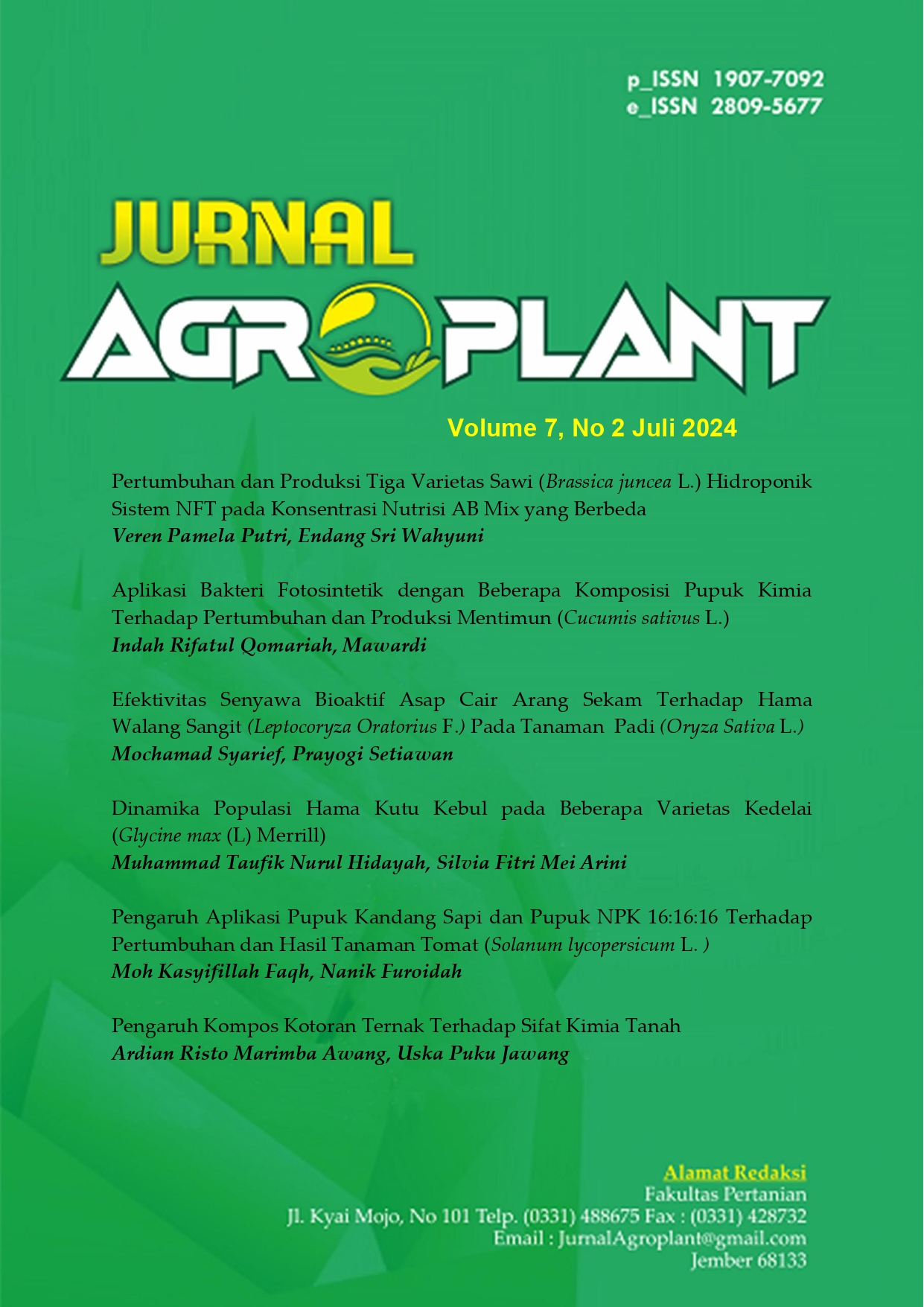Efektivitas Senyawa Bioaktif Asap Cair Arang Sekam Terhadap Hama Walang Sangit (Leptocoryza Oratorius F.) Pada Tanaman Padi (Oryza Sativa L.)
DOI:
https://doi.org/10.56013/agr.v7i2.3000Keywords:
Husk Charcoal Liquid Smoke, Leptocoryza oratorius F.Abstract
Leptocoryza oratorius F. is the main pest of rice plants. Farmers generally use synthetic insecticides to control this pest which can have a negative impact on natural enemies and the environment. Alternative control is needed, one of which is using the bioinsecticide liquid charcoal husk smoke. This research aims to determine the effectiveness of husk charcoal liquid smoke on the population, intensity of attacks by L. oratorius F. and rice crop yields. This research was carried out from December 2023 to March 2024 in the Jember State Polytechnic Bioscience laboratory and on rice cultivation land in Wonosari District, Bondowoso Regency. This research consisted of 2 stages including the bioactive compound content of grade 3 husk charcoal liquid smoke using GCMS and field tests to compare the effectiveness of grade 3 husk charcoal liquid smoke bioinsecticide compounds 3%concentration with synthetic insecticide containing the active ingredient Fipronil 2 ml per liter concentration. Each dose was 400 liters/ha, on population, attack intensity and crop yield. The conclusion of the study was that the population, intensity of attacks by L. oratorius F. and the grain dry weight between the biopesticide treatment of liquid charcoal husk compared to Fipronil were not significantly different. The charcoal husk liquid smoke biopesticide treatment showed: population was 3.00 individuals per plant clump, intensity of attack was 10.30%, grain dry weight was 24.33 grams per plant clump, Fipronil treatment: population was 2.85 individuals per plant clump, intensity of attack was 10.65%, grain dry weight was 26.22 grams per plant clump.
Downloads
Published
How to Cite
Issue
Section
License
Copyright (c) 2024 Mochamad Syarief, Iqbal Ferdiansyah, Prayogi Setiawan

This work is licensed under a Creative Commons Attribution-NoDerivatives 4.0 International License.









